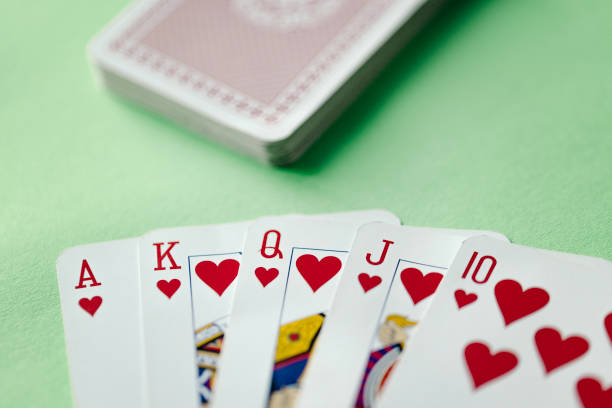- 3 Sep 2025

Poker is a game of skill, chance, and strategic thinking—and one of the most exciting parts is learning the various hand rankings. Among them, the flush stands out as a powerful yet commonly misunderstood hand. Whether you’re a beginner or looking to sharpen your poker strategy, understanding what is a flush in poker can greatly improve your gameplay.
A flush in poker is a hand where all five cards are of the same suit, but not in sequential order. For example:
9♠ J♠ 2♠ 5♠ K♠ is a flush in spades.
As long as the five cards are all hearts, diamonds, clubs, or spades—and not in a straight order—you’ve got yourself a flush. It doesn’t matter what the ranks are; the only thing that matters is that all cards share the same suit.
Flushes can occur in many poker variants, including Texas Hold’em, Omaha, and Seven-Card Stud.
A flush ranks above a straight and below a full house. Here’s a quick breakdown of hand rankings from highest to lowest:
Royal Flush
Straight Flush
Four of a Kind
Full House
Flush
Straight
Three of a Kind
Two Pair
One Pair
High Card
When multiple players have a flush, the highest card in the flush determines the winner. For example:
Player A: A♣ 9♣ 6♣ 5♣ 2♣
Player B: K♣ Q♣ J♣ 8♣ 3♣
Player A wins because the ace is higher than the king.
Any five cards of the same suit, not in sequence.
Example: 3♦ 5♦ 7♦ 10♦ Q♦
Five sequential cards of the same suit.
Example: 4♣ 5♣ 6♣ 7♣ 8♣
This hand is stronger than a regular flush.
The highest possible hand: A♠ K♠ Q♠ J♠ 10♠
This is a special case of a straight flush and beats every other hand in poker.
A flush always beats a straight in poker. Why? Because it’s statistically harder to get five cards of the same suit than five cards in sequence of mixed suits.
Let’s compare:
Flush: 2♠ 6♠ 9♠ J♠ Q♠
Straight: 6♦ 7♣ 8♠ 9♥ 10♣
In this case, the flush wins—even though the straight may look impressive.
In Texas Hold’em, the odds of making a flush by the river (with two suited hole cards and four suited cards on the board) are around 34.97%. Be mindful of the odds when drawing.
If there are three or more cards of the same suit on the board, your opponent could have a flush. Don’t get too attached to your straight or two pair.
Being in a later position gives you more information. If your opponents check on a flush-heavy board, you may be able to steal the pot with a semi-bluff or value bet.
A low flush, like 4♥ 6♥ 9♥ J♥ Q♥, is vulnerable to higher flushes. If heavy betting ensues, consider whether your flush is really the best hand.
Chasing Too Hard: Don’t waste chips chasing a flush if the pot odds aren’t in your favor.
Ignoring the Board: If four suited cards are on the table and you only have one of that suit, you don’t have a flush.
Overvaluing Weak Flushes: A 7-high flush is rarely strong in aggressive games. Play it cautiously.
So, what is a flush in poker? It’s a hand made of five cards of the same suit, and it’s a strong contender in most games. While it doesn’t beat full houses or four-of-a-kinds, it holds its own against many hands and is relatively attainable during gameplay.
To master the flush, always consider the board texture, your position, your opponent’s tendencies, and the strength of your cards. The more you understand about flushes and their place in poker strategy, the better your chances are of using them to win big.
Pro Tip: Practice makes perfect. Use online poker platforms or apps with simulated games to get familiar with reading the board and identifying flush opportunities.
Now that you know what a flush is in poker and how to play it smartly—next time you’re dealt two suited cards, you’ll know exactly what to look for and how to turn it into a winning hand.